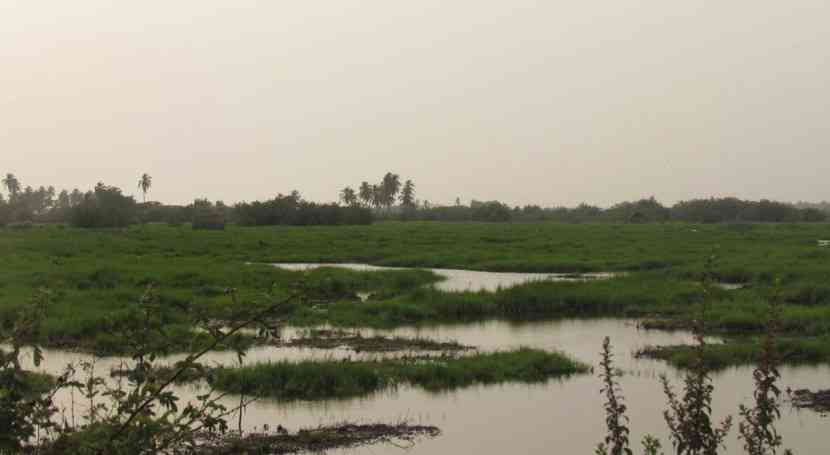
HARARE, Apr.16 (NewsDayLive)- Residents of Greater Harare and city fathers have embarked on a new initiative aimed at preserving wetlands.
The parties say they will soon sign memoranda of understanding (MoU) binding them to the initiative.
The MOUs will pave the way for residents’ associations to be actively involved in the protection and preservation of the fragile ecosystems, at the same time looking after the important Greater Harare water catchment basins.
The city's rapid urbanisation and housing shortages have led to the destruction of these vital ecosystems.
Most Harare wetlands are being converted into residential areas, commercial operations, and infrastructure projects, despite legislation to protect them since 2007.
Harare has 49 gazetted wetlands, four of which are Ramsar proclaimed sites.
Over the years, residents have accused the City of Harare for not effectively enforcing wetland protection laws, with some councillors and land barons involved in irregular land allocations.
Wetlands provide essential services like water harvesting, flood control, and habitat for wildlife. Their degradation can have severe consequences for both the environment and local communities.
- We urgently need to save our wetlands
- Feature: Human activity threatens Zimbabwe’s wetlands
- Cartoon: December 19, 2022 edition
- 103 wetlands put under sustainable management
Keep Reading
The city’s recently formed environmental management unit under the directorship of Libsen Chipfunde believes the MoUs will go a long way in the protection of these finite biomes.
"We welcome residents’ associations’ input, " said Chipfunde.
"This action which incorporates resident groups will support measures the city’s environmental policy which the CoHEMU is crafting."
Council's works and town planning committee Prince Mutebuka said the matter will soon be brought before full council for approval.
Resident associations in the capital city have over the years haggled with the council authorities over preservation of the delicate ecosystems.
Critics have argued that because of the loss of the wetlands, the city has witnessed increased incidences of flooding, pollution, and decreased biodiversity.
Some of the specific areas affected by wetland destruction in Harare include, Glen Norah, Budiriro, Mabvuku, Warren Park, Waterfalls, Belvedere, Msasa Park, Monavale and Ruwa.
Residents and environmentalists also opposed that the conversion of headwater wetlands to development is being facilitated by the City of Harare, the Ministry of Local Government and Public Works, plus the Environmental Management Agency and the Minister of Environment, Climate, Tourism and Hospitality Industry, who act in concert with private sector and state developers and development consultants to facilitate continued construction on wetland areas.
Many developments proceed without necessary authorizations; permits are often issued without following due procedures and regularized later; loopholes in legislation are exploited to enable the issuing of environmental and development permits; and, in cases where permits are declined, these decisions are frequently overturned through appeal to the Minister.
"For these reasons The ongoing conversion of headwater wetlands to infrastructure cannot be considered compatible with “wise use” of wetlands, nor with sustainable development of the city." Challenges Julia Peirini, a wetland advocate and Birdlife Zimbabwe director.
Latest data from the Environmental Management Agency (EMA) revealed that Harare's wetlands are facing significant challenges, with almost 43-49% of wetlands in the city being damaged by human activities as of 2020. Eighteen percent of the city's wetlands are classified as still in tack.
Show quoted text










